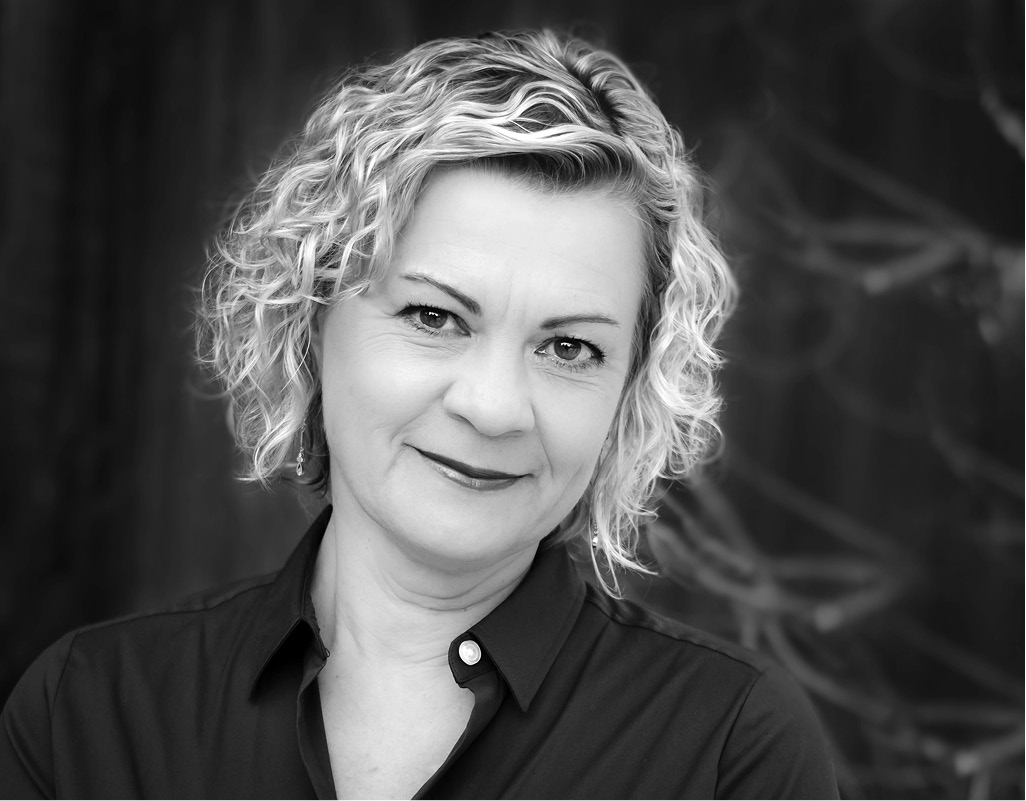The Middle of Somewhere (28 page)
Read The Middle of Somewhere Online
Authors: Sonja Yoerg

HAPTER THIRTY-THREE

L
iz pulled her phone from the hip pocket of her jeans with her left hand, an awkward move even after two weeks. A missed call, probably as she'd gone through airport security. She slid the icon to the right.
“Hey, Liz. It's Russ. Your dad. Yeah, so I was talking to your mom and she mentioned your hiking trip. Anyway, if you've got a minute . . .” His voice trailed off and the message ended. She'd not heard from him in two years, and then only because he had business in San Jose. She checked the timeâher flight for Albuquerque wasn't boarding for a half hourâfound his number and called.
“Russ here. Tell me you're not selling me something.”
“I'm not selling you anything. It's Liz.”
“You don't say! This time of day all I get are salespeople.”
“You're a salesperson.”
“You got me there, kiddo.” He took a swig of something and smacked his lips. “You pick up my message?”
“Yes.”
“Well, I thought I'd give you a jingle. Sounds like one helluva camping trip.”
She couldn't help but laugh.
“Read about those guys in the paper.” He whistled. “Blew up their dad with a rigged door, then ran off with the goods from the family pot farm, plus the other stuff. What's it called?”
“Meth.”
“Yeah, meth. That's it. Boosted a truck, too. With a gun in it, naturally. Maybe killed that actor. Bronson?”
“Matthew Brensen.”
“He's the one. Anyhoo, that's a considerable amount of wrongdoing. Lucky you didn't get hurt.”
“Only a little.”
“What? Oh, right. Your arm. Your mother mentioned a fellow. A Mexican guy. He your boyfriend?”
“He's more than that,” she said.
“You don't say. Well, that's nice. It's not healthy to be alone.”
Relationship advice from her father. The world was officially upside down.
He cleared his throat. “Your mother and I went camping a lot, even a couple of backpacking trips. Had some great times.”
This was more information than she'd ever received about her parents. “Where did you go?”
“Bandelier, the Pecos, Sedona, around Flagstaff. All those places I took you. Used to go there to dry out from Seattle.”
And she had thought her camping trips with her father had been about economizing, not connecting her to his past.
He went on. “And it looks like you got the hiking bug. That's nice.”
“I do love the mountains.”
“Remember that time in Bandelier? You aren't still afraid of thunderstorms, are you?”
“I'm working on it.”
“That's good. I wouldn't like to think anything happened on my watch that scarred you for life.” He chuckled at the idea.
“I think you would have had to try harder. There weren't many watches.”
“I suppose not.” His tone signaled increasing boredom. “Well, it's bedtime out here, and the grandkids are coming over tomorrow.”
She wondered which one of the half siblings she'd never met had had children. She tried to conjure an image of Russ holding a baby, and failed. “I won't keep you. Thanks for calling.”
“No problem. You take care. Maybe I'll be out there one of these days.”
“Maybe you will.”
“If my back isn't a mess, maybe we could even go for a little hike somewhere.”
“I'd like that, Russ.”
She rented a car in Albuquerque and drove north, arriving at Claire's house in the late afternoon. Claire hugged her at the door and ushered her inside. Her mother had made unusual flourishes of hospitality: takeout from Enrico's in the fridge, a jar of chrysanthemums on her nightstand and a pair of fuzzy slippers by the bed. When Liz thanked her, she shrugged. “It's so little, really. And the tile floors do get chilly this time of year.” They drank tea and shared a scone at the chipped blue table. Her mother slurped her tea and chewed gracelessly, the inevitable consequence of too many solitary meals. She spoke of the recent death of a close friend, and of the stoicism of another battling cancer.
“She's my age,” she said, squinting beyond the bare branches at the window, as if she might see what lay in store for her. Without looking down, she swept the crumbs to the floor.
The next day they walked along the river and across to the plaza. Liz slowed her pace to match her mother's. She had never been conscious of Claire's age before; her mother had always been colorful, inviolable and ageless. They approached the Romanesque cathedral, whose large, square towers, Corinthian columns and rose window contrasted dramatically with the ubiquitous adobe buildings.
Claire said, “I attend mass here from time to time. For the singing.”
She pictured her mother at the far end of a pew, but not at the rearâClaire wasn't a lurkerâhumming and swaying to hymns that were to her only songs. Liz imagined if her mother returned for ten, fifteen years, she might absorb the church's religion the way its stones absorbed the sun's heat. A song could become an anthem.
A man passed by, holding hands with a little girl eating ice cream. Liz remembered what she'd been meaning to ask her mother.
“Russ mentioned the two of you used to hike near here.” Claire gave her a questioning look. “He called me.”
She nodded. “We were roughly your age. He loved to drag me into the woods. Made it hard for me to wander off on my own, as was my inclination. Is.” She stopped short and regarded her daughter. “How long was the backpacking trip you did with Dante?”
“Eighteen days.”
“I always thought you were a loner, Elizabeth. Like me.”
“So did I. But not anymore.”
She brushed the transformation away with her hand. “Either way is fine. You just need to decide what you prefer.”
“Don't you get lonely?”
“Of course. But that's the price I pay to get out from under the weight of other people's perceptions, their judgments. I'm not strong enough to bear them.”
She pitied her mother then, because Liz knew the things that matter most are not borne because of others, but with them.
Late that afternoon, she called Dante from the boarding area. He picked up on the first ring.
“
Carina.
How is your mother?”
“The same. Older. But fine.” She checked her watch. “My flight's on time.”
“Good. I've missed you.”
“I've missed you, too.”
“But Muesli, I'm afraid, feels differently. She has taken up residence on your pillow.”
“Two days and you give her squatter's rights?”
“She's persuasive. Especially her claws.”
Liz laughed. “See you in a few hours.”
“Safe travels,
carina
.”
“Te amo.”
“Te amo.”
She boarded the plane, took her seat at the window and settled in with her book. She looked outside from time to time as they passed over the desert, shadows from the mesas deepening in the canyons. An hour and a half into the flight, Death Valley appeared, glowing like hammered copper. She put down her book. The Sierras came into view, the eastern slopes soaring out of valley, crests dusted white from a recent snow. Row upon row of peaks, stretching northward out of sight. Somewhere below was Mount Whitney. She may have spotted it, but couldn't be sure. From this vantage point, even the highest mountain in the continental U.S. resembled the others. Somewhere below was Wallace Creek, running to the Kern, and Bubbs Creek and Woods Creek and, farther north, out of sight, the Tuolumne. Someone, quite a few intrepid someones, in fact, were stirring dinner over a tiny stove, or lying huddled in their sleeping bags. Nutcrackers were returning to their roosts. Somewhere below the wind was stealing a treasure of aspen leaves and floating them to the ground. And everywhere pine boughs gave in a little to the snow and granite did not.
The foothills flowed, reaching for the sea. The Sierras were behind her now. She was going home.
AUTHOR'S NOTE
F
or the purposes of the story, I suggest the park rangers are largely absent, and perhaps not performing their duties. The rangers I have met while backpacking have been universally competent, serious in their duties and extremely friendly. They perform a tough job in a tough environment, and I hope they forgive my license.
The John Muir Trail described in this novel is as close to the actual trail as I could manage, but those familiar with the area may notice I omitted the Crabtree Ranger Station.

QUESTIONS FOR DISCUSSION
1. How did you feel about Liz when you learned she'd had an abortion and kept it a secret? If your feelings changed over the course of the novel, what caused this change? Did Dante's ultimate compassion and love alter how you saw Liz?
2. At one level,
The Middle of Somewhere
can be understood as an allegory, with life as a wilderness and the trail representing the journey through it. The Root brothers, within this metaphor, represent evil. What other elements of the story (characters, events, and places) have allegorical significance?
3. Liz's marriage to Gabriel began with love and hope and ended in betrayal and disaster. As Dante pointed out, they were very young. Is that the whole story? What is your understanding of what happened between Liz and Gabriel? Do you think Liz has put that behind her?
4. How do you feel about Liz's affair? Did you feel she had “paid” for her infidelity with the death of her husband? More generally, how do you view Liz in light of her upbringing, her actions (the abortion, the affair, the secrets), and her feelings about herself?
5. Along the trail, Liz and Dante encounter and sometimes befriend other hikers. What role did these characters (Brensen, Paul, and Linda) play in the larger story?
6. The story was told from a single point of view: Liz's. What would have been added, or diminished, by adding other perspectives?
7. The Root brothers became more and more of a threat as the story progressed. Did you see the stress they caused as a mirror of the conflict between Liz and Dante? At what point did you realize just how dangerous the Roots were? The reason the Roots pursued and threatened Liz and Dante was never completely clear. Did this bother you, or did you draw your own conclusions?
8. The barren splendor of the Sierra is central to this book. What did the landscape mean to Liz, and did that change over the course of the hike? Can you imagine this story in a different setting? In other words, how dependent was the unfolding and resolution of Liz and Dante's journey on the physical surroundings, including the weather?
9. If you have been on an outdoor adventure, did that experience cause you to reflect on your life in a new way? In general, does “getting away from everything” or deliberately jumping out of one's comfort zone promote new thinking? Is this something you'd welcome in your life?
10. Why do you think Liz chose to go on the hike? What was she looking to accomplish? Did she succeed?
11. What do you believe happens after the book ends? Do Liz and Dante marry? Do they have children? Does Dante reconnect with his estranged sister, Emilia? Do you foresee any changes between Liz and her parents?

Photo © Sandy Payne Photography
Sonja
Yoerg
grew up in Stowe, Vermont, where she financed her college education by waitressing at the Trapp Family Lodge. She earned her PhD in Biological Psychology from the University of California at Berkeley and published a nonfiction book about animal intelligence,
Clever as a Fox
(Bloomsbury USA, 2001). Sonja, author of the novel
House Broken
, currently lives with her husband in the Shenandoah Valley of Virginia.
